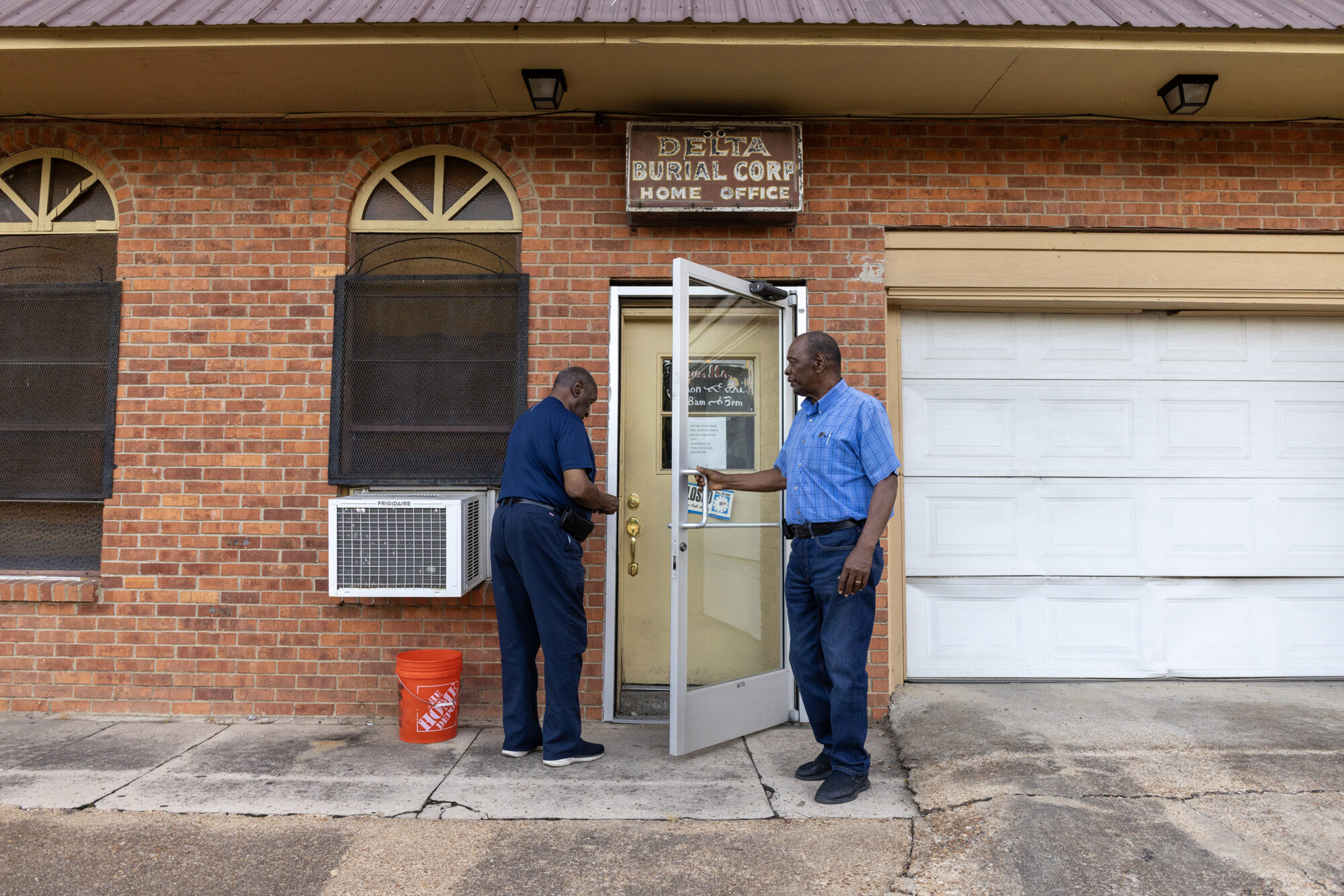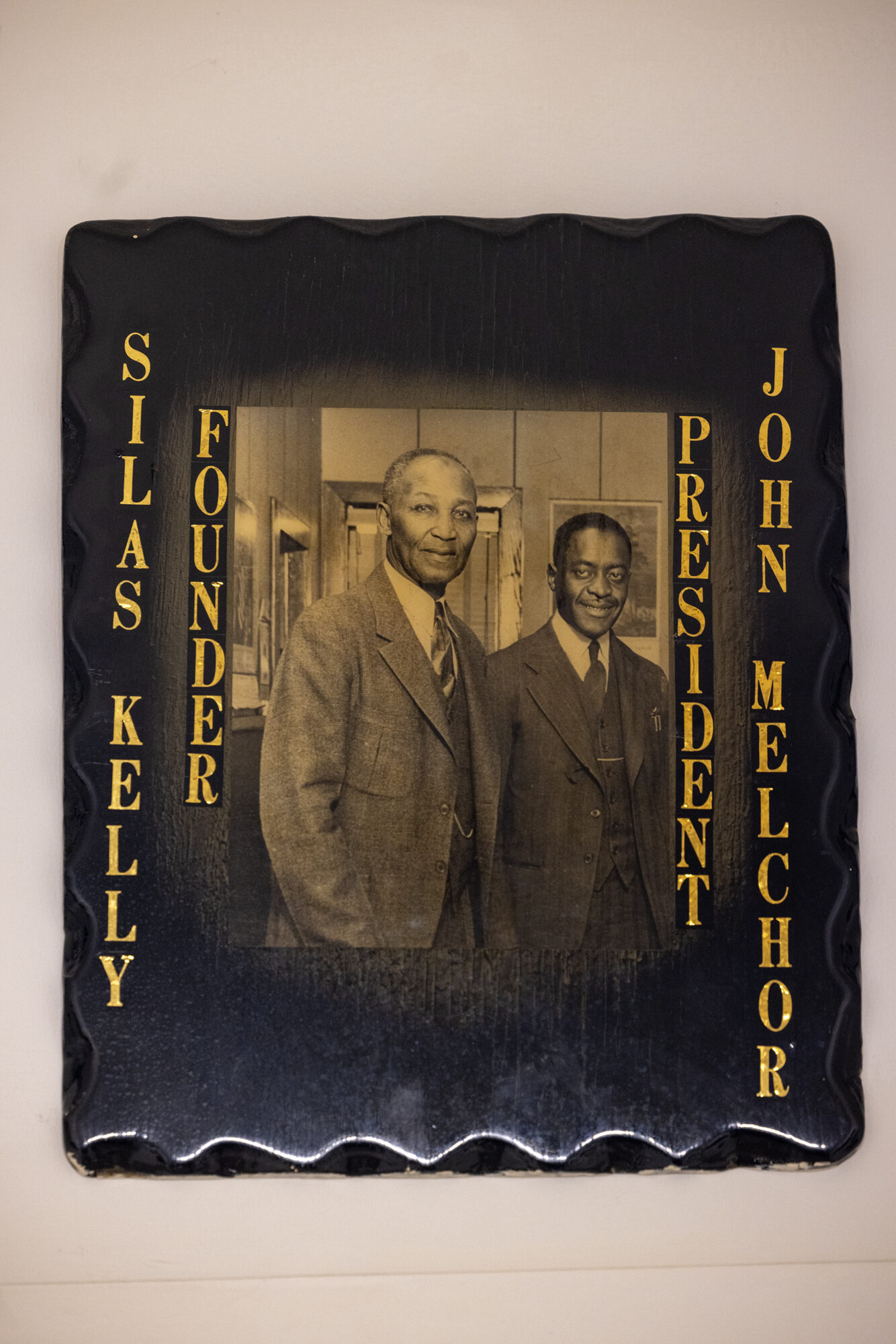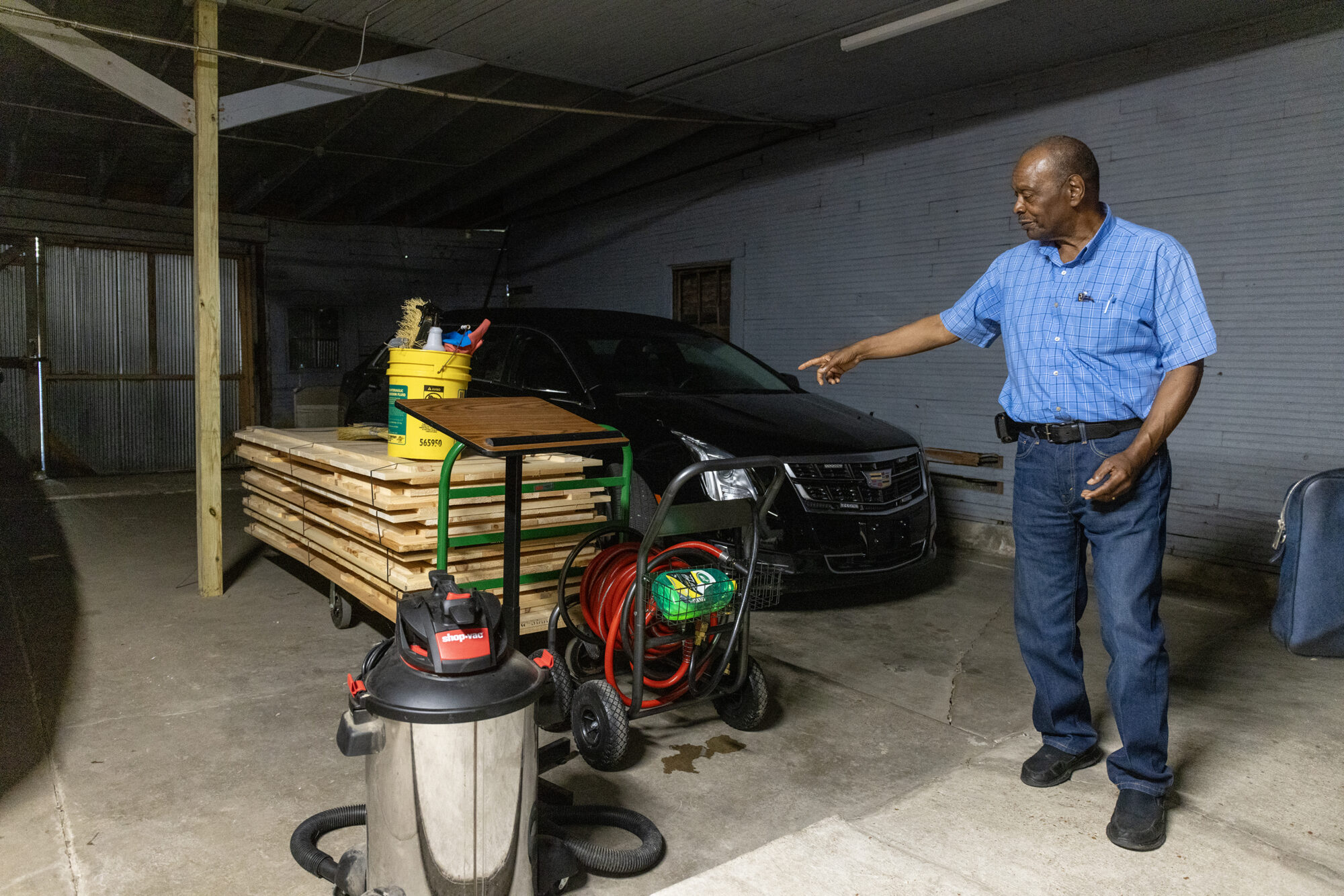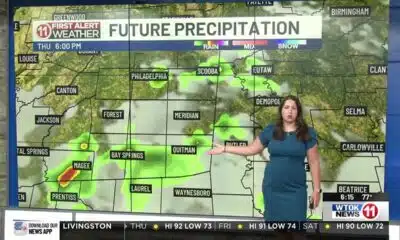Mississippi Today
How much trash does the Mississippi River funnel from the heartland to the ocean?

The Mississippi River drains more than 40% of the continental U.S. – just how much trash does it take along with it?
That’s what a group of researchers and environmental advocates wanted to find out when they began a litter analysis of a handful of cities along the river a few years ago. This fall, they released what they’re calling the “first-ever snapshot of the state of plastic pollution along the Mississippi River.”
Between 2021 and 2022, volunteers from St. Paul, Minnesota; the Quad Cities area in Iowa and Illinois; St. Louis, Missouri; Greenville and Rosedale, Mississippi; and Baton Rouge, Louisiana; logged trash they found into the University of Georgia’s Debris Tracker app. The study came on the heels of a 2018 commitment from mayors along the river to reduce plastic and trash.
Although many people might think oceanside cities bear the responsibility to keep plastic and trash out of the water, the Mississippi River can act as a funnel for that trash from the heart of the country to the Gulf of Mexico.
The study was also meant to raise people’s awareness of the river’s role in keeping other waters clean, said Jennifer Wendt, plastic waste reduction campaign manager for the Mississippi River Cities and Towns Initiative — the mayors’ group that worked on the study.
For example, a piece of litter that someone tosses on the ground in Missouri could theoretically make its way through storm drains, to tributaries, to the Mississippi, to the Gulf and then to the ocean.
“It may not look like a plastic beverage bottle by the time it gets to the ocean, but it’s still there,” Wendt said.
Here’s what to know about the study results, what’s next for reducing plastic and trash along the river and how you can keep plastic out of important waterways.
What was the top trash found in the Mississippi River?
About 80,000 litter items were logged during the study’s data collection period.
Plastic was the top material found in and around the river, making up 75% of the total trash. Paper and lumber was next at 9%, followed by metal at 7%, glass at 5%, and personal protective equipment like masks at 2%.
The top 10 most commonly found items included:
- 11,278 cigarette butts
- 9,809 food wrappers
- 6,723 beverage bottles
- 5,747 foam fragments
- 4,239 hard plastic fragments
- 4,210 paper and cardboard items
- 3,882 plastic bags
- 3,640 aluminum or tin cans
- 3,260 foam or plastic cups
- 3,149 film fragments
Other notable finds include 825 masks, 480 items of clothing and shoes and 291 pieces of fishing gear.
In an optional survey after logging the trash they found, participants were asked if they cleaned it up. Close to three-fourths said yes.
What do the results tell us about litter habits?
People may not know that cigarette filters are made of cellulose acetate, a type of plastic, Wendt said. They can take up to 10 years to decompose. And cigarettes can also leach other toxic chemicals into the water, according to the report.
Another intriguing finding was the amount of plastic beverage bottles and aluminum cans found, Wendt said — both of which are recyclable.
She noted that of the cities that took part in the study, only one of their states, Iowa, has a so-called “bottle bill,” in which people pay a five-cent deposit when they purchase a beverage container and get a five-cent refund if they return the container to a store or redemption center. Bottles were lower down on the litter list in the Quad Cities than in other places.
Legislation like that “is not very popular politically,” Wendt said, “but it does work.”
Some states along the river prohibit local bans of plastic bags, she pointed out.
What’s next for keeping plastic out of the river?
River-wide data collection has wrapped up, but Wendt said the next step is carrying out city-specific projects to reduce plastic pollution.
Those include providing funds to underserved neighborhoods in St. Louis and Baton Rouge so they can pursue what they see as integral to reducing waste, like installing water-filling stations, or developing a curriculum for schools to teach about recycling.
The mayors’ group will continue to work with the University of Georgia to do a comprehensive assessment of waste management in a few cities, Wendt said, and they’re also planning to work with cities that don’t have recycling programs to provide people a way to recycle.
Wendt maintained that while recycling is part of the solution, it’s not the only solution.
“(The discussion is) moving in the right direction, from ‘Oh, we just need to clean up litter…’ to, ‘Oh, we actually need to reduce the source if we’re going to have any real impact,’” she said.
What can people do to reduce plastic into waterways?
The biggest step people can take is to stop using plastic bags, Wendt said. That also goes for single-use plastic water bottles, she said, except for those who need to drink out of them because of water contamination.
Beyond that, talk to local retailers and see if they’d be willing to ask customers if they want a bag instead of assuming they do, she said, and ask if restaurants could switch to sustainable materials for carryout containers and leftovers. Consumers can push retailers to make changes like this, she said, though she acknowledged it works best when people approach retailers as a group.
Nationally, Wendt said more attention is needed for the role the Mississippi River plays in carrying plastic and trash.
When she attends events about reducing plastic, representatives from coastal cities are often the only ones at the table.
“There’s this whole rest of the middle of the country that needs a little bit of focus,” she said.
This story, the last in a three-part series, published in partnership with the Mississippi Center for Investigative Reporting, part of Mississippi Today, is a product of the Mississippi River Basin Ag & Water Desk, an independent reporting network based at the University of Missouri in partnership with Report for America, funded by the Walton Family Foundation.
This article first appeared on Mississippi Today and is republished here under a Creative Commons license.
Mississippi Today
Whooping cough cases increase in Mississippi
The Mississippi State Department of Health issued an alert Wednesday that cases of pertussis, or whooping cough, are climbing in the state.
The year-to-date number of cases in Mississippi ballooned to 80 as of July 10. That compares to 49 cases in all of 2024.
No whooping cough deaths have been reported. Ten people have been hospitalized related to whooping cough, seven of whom were children under 2 years old.
Cases have largely been clustered in northeast Mississippi. The region accounts for 40% of cases statewide.
The nation has also seen rising rates of whooping cough, though cases have been climbing less steeply than in Mississippi. About 15,000 whooping cough cases have been reported nationwide this year, according to the Centers for Disease Control and Prevention.
The highly contagious respiratory illness is named for the “whooping” sound people make when gasping for air after a coughing fit. It may begin like a common cold but can last for weeks or months. Babies younger than 1 year are at greatest risk for getting whooping cough, and can have severe complications that often require hospitalization.
Whooping cough cases fell in Mississippi after the COVID-19 pandemic began, but have since rebounded. This is likely due to people now taking fewer mitigation measures, like masking and remote learning, State Epidemiologist Renia Dotson said at the state Board of Health meeting July 9.
The majority of cases – 76% – have occurred in children. Of the 73 cases reported in people who were old enough to be vaccinated, 28 were unvaccinated. Of those 28 people, 23 were children.
“Vaccines are the best defense against vaccine preventable diseases,” State Health Officer Dr. Dan Edney said after the State Board of Health meeting.
Mississippi has long had the highest child vaccination rates in the country. But the state’s kindergarten vaccination rates have dropped since a federal judge ruled in 2023 that parents can opt out of vaccinating their children for school on account of religious beliefs.
The pertussis vaccination is administered in a five-dose series for children under 7 and booster doses for older children and adults. The health department recommends that pregnant women, grandparents and family or friends that may come in close contact with an infant should get booster shots to ensure they do not pass the illness to children, particularly those too young to be vaccinated.
Immunity from pertussis vaccination wanes over time, and there is not a routine recommendation for boosters.
State health officials also encourage vaccination against other childhood illnesses, like measles. While Mississippi has not reported any measles cases, Texas has had recent outbreaks.
The Mississippi Health Department offers vaccinations to children and uninsured adults at county health departments.
Correction 7/16/25: This story has been updated to reflect that the age of the seven hospitalized children is under 2 years old.
This article first appeared on Mississippi Today and is republished here under a Creative Commons Attribution-NoDerivatives 4.0 International License.
The post Whooping cough cases increase in Mississippi appeared first on mississippitoday.org
Note: The following A.I. based commentary is not part of the original article, reproduced above, but is offered in the hopes that it will promote greater media literacy and critical thinking, by making any potential bias more visible to the reader –Staff Editor.
Political Bias Rating: Centrist
This article presents a straightforward, fact-based account of rising whooping cough cases in Mississippi without ideological framing. It cites official sources such as the Mississippi State Department of Health and the Centers for Disease Control and Prevention, offering context, statistics, and public health recommendations. While it mentions a 2023 federal court ruling that allowed religious exemptions to vaccinations—a potentially contentious topic—it does so factually without editorializing or assigning blame. The overall tone remains neutral and informative, aligning with public health reporting rather than political advocacy.
Mississippi Today
Driver’s license office moves to downtown Jackson
The driver’s license office in Jackson has moved downtown as the Mississippi Department of Public Safety prepares to shift its headquarters from the capital city to suburban Rankin County.
The department last month announced it was closing the license office that had operated for decades next to its headquarters just off Interstate 55 at Woodrow Wilson Avenue, near the VA Medical Center.
The new office is at 430 State St., near Jackson’s main post office and a few blocks from the Capitol.
“This location provides easier access for those who live and work in the area and ensures we can continue offering vital driver services in a more convenient and accessible space within the city of Jackson,” said Bailey Martin, spokesperson for the Department of Public Safety.
Mississippi has 35 driver’s licenses offices. The new Jackson office is in a former car dealership – an all-white building with floor-to-ceiling windows that fill the space with sunlight. On Wednesday, customers sat on black benches, chatting or scrolling on their phones while waiting to be called up to get or renew a license.

Carlos Lakes, 34, from Yazoo City, said he first went to the Richland office that issues commercial driver’s licenses but couldn’t get what he needed there. He said he then went to the old office on Woodrow Wilson and saw a note on the door showing the office had moved.
“So, it’s been about two hours of running around,” said Lakes, a truck driver.
He said the customer service at the new office was good, aside from the long wait time.
Medical student Seth Holton, 22, had a similar experience. He drove in from Flora, in Madison County, and went to the Woodrow Wilson location before finding the new office. He said it was his first time getting his license renewed.

“I think it looks nice,” Holton said of the new location. “I think it’s organized. There’s good seating. It’s pretty quick, for the most part.”
Student Marquerion Brown, 19, posed for photos with a large cardboard frame of a driver’s license in the corner of the new office. He’d just passed his driver’s test for the first time.
“I’m just lucky and thankful to get this one this time,” Brown said. He hadn’t decided where he wanted to drive first. “I got a lot of places in mind.”

The Department of Public Safety headquarters will open in Pearl within the next year, near the state’s crime lab, fire academy and emergency management agency.
Martin said the new headquarters will allow the department to have its divisions in one place – the highway patrol, bureau of investigation, bureau of narcotics, homeland security office and commercial transportation enforcement.
“As such, this move will enhance operational efficiency with other public safety partners, improve interagency collaboration, and position the department for future growth,” Martin said.
The headquarters move has been in the making for over five years. Public safety officials said the old building on Woodrow Wilson fell into disrepair after years of neglect.

Sen. David Blount, D-Jackson, was part of a group of lawmakers who proposed moving the headquarters to a different location inside Jackson.
“I personally think that the state government should be based in the state capital,” he said.
This article first appeared on Mississippi Today and is republished here under a Creative Commons Attribution-NoDerivatives 4.0 International License.
The post Driver's license office moves to downtown Jackson appeared first on mississippitoday.org
Note: The following A.I. based commentary is not part of the original article, reproduced above, but is offered in the hopes that it will promote greater media literacy and critical thinking, by making any potential bias more visible to the reader –Staff Editor.
Political Bias Rating: Centrist
This article from *Mississippi Today* offers a factual and neutral report on the relocation of the Jackson driver’s license office and the broader headquarters move by the Mississippi Department of Public Safety. It includes quotes from officials and everyday citizens without editorializing or promoting a specific viewpoint. The inclusion of Sen. David Blount’s comment presents a mild political contrast, but it is balanced and not framed in a confrontational or ideological way. The tone remains focused on public service logistics and community impact rather than political narrative.
Mississippi Today
Mississippi Delta funeral home marks century of service
MARKS – In 1925, a body hung, suspended in a village square outside Lambert, Mississippi. The man, whose name has been lost to time, was the victim of a lynching – one of several hundred Black people killed at the hands of white mobs in the Mississippi Delta in the first half of the 20th century.
Local Black sharecroppers were afraid to cut the man down. But Silas Kelly wasn’t. The wealthy Black landowner took the body to his home to prepare for burial. The idea for Delta Burial Corp. was born.
Now 100 years later, the funeral home’s mission is the same: provide dignified burials for locals in the Mississippi Delta, regardless of status and income.
Without help from nearby banks, Kelly and his Black colleagues in business and farming pooled their money to form a company. To this day, it remains a business managed entirely by Black stockholders.
Black mourners who sought a standard burial previously had to visit white funeral homes that subjected them to subpar service and inflated costs.
In an oral history, Greenville native and funeral home director Beatrice Huddleston recounted how sharecropper neighbors were often forced to tear plywood from their shacks for a makeshift coffin.
With local wages in mind, Delta Burial offered services on a sliding scale or with small monthly premiums throughout the Jim Crow era, the AIDS epidemic, floods and wars. Its leaders have provided sanctuary for civil rights organizers, hosted burial society galas and organized countless celebrations of life.
The funeral home’s longtime mortician, Woodrow “Champ” Jackson, embalmed Emmett Till’s body at his previous job – and assisted in the transport of the teenager’s body to Chicago. Jackson mentored several morticians who have passed through the Marks funeral home’s screened door.
Today, much of Delta Burial’s clientele still comes from Quitman County, along with southern Tunica County, Coahoma County and Tallahatchie County. Through the business’ inclusion in the National Mortuary program, the funeral home prepares bodies from as far as Los Angeles, Chicago, New York and even East Africa.
This month, Delta Burial Corp. celebrates its 100th year serving Mississippi Delta families. Manuel Killibrew, the corporation’s latest president, credits the firm’s longevity with “reaching out to the community” and “good service.”
A community undertaker
When his father fell ill, Killibrew assisted him on house calls to collect burial insurance. He grew accustomed to his father’s route and soon took it over. He came to appreciate the conversations in neighbors’ living rooms. Every month, he would bring his report and cash to what 55 years later would be his office.
After receiving a large insurance payout from a car accident, he bought his first two shares in the company. He later became general manager and president.
Some aspects of the business haven’t changed. He still makes house calls, visiting grieving families and discussing funeral packages. He still has to negotiate with pastors to keep their sermons and services short enough to make the reserved time at the cemetery.

While the same sales agents for casket companies and vaults still call Killibrew, they now all work for the same company. Many of his suppliers have consolidated, which means higher prices. Memphis, Tennessee, and the Mississippi towns of Canton and Batesville used to have their own casket factories.
Killibrew, who says integrity and fairness are guiding principles, welcomes regulations in the death care industry.
State law requires funeral home directors to show families the actual costs of caskets, vaults, embalming and other services and products. The directors must deposit 85% of money from prearranged funeral contracts into a trust. The money is only released to the funeral home after the service is completed.
At Delta Burial, families have been shown actual prices of products and services as long as Killibrew has led the company.
He said customers often ask for credit so they can pay expenses over time.
“But we don’t turn anybody down,” Killibrew said. “Some bring money every month. Some don’t. But I know we are blessed. We were founded on a religious foundation.”
“You make more on one family and lose more on another. So you still hang on,” he added.
He said a majority of Delta Burial funerals cost $3,000 to $6,000, which is well below the state average of roughly $8,000. He said he has only sold a $10,000 funeral roughly four or five times in his career.
Families are selecting cremation more than in the past for financial reasons. Even Mississippi, which has the lowest cremation rate in the country, saw a 31% increase in cremations from 2019 to 2023, according to the Mississippi State Department of Health.
In his garage, between two Mercedes-Benz hearses, Killibrew pointed to a 4-foot stack of wooden box slats. The most affordable option available for a traditional burial is for his team to assemble a wooden coffin on-site.
“But some still like the show,” he said.
Some families are willing to pay a couple hundred to a thousand extra for a horse-drawn carriage procession. Some opt to rent the Cadillac hearse, which he recently bought in Atlanta for $134,000.
The ancestors
Delta Burial leadership and staff played a discrete role in the civil rights movement. For many morticians who were already embedded in the community, activism was an extension of their service.
On Feb. 2, 1962, former Delta Burial President John Melchor was sentenced to six months in jail for organizing a boycott against white business owners. Two other nearby funeral home directors were sentenced, too. Melchor’s bond was set at $1,500, which would be roughly $16,000 today.
Melchor also hosted the Rev. Martin Luther King Jr. at his home in Clarksdale. The two spoke on the telephone frequently and strategized on how to register Black voters in the Delta.
“Until they are stopped, our money, our tax money, will go to the White Citizens’ Council. To be free, you and I must pay and give,” Melchor wrote in a letter to Mississippi pastors and community organizers dated Feb. 14, 1961.

He was fundraising for legal challenges to school segregation cases and cases involving the imprisonment of civil rights activists.
Melchor’s wealth and business success were seen as a threat by his white peers. The Mississippi Sovereignty Commission, a state agency that spied on civil rights activists, kept more than a dozen files on him.
Like other Delta funeral home directors, Melchor’s business suffered as a result of his activism. The Sovereignty Commission connived with local law enforcement to jail his embalmers for operating without a license. While it was standard to leave the license at a business and not in a hearse, law enforcement still fined Melchor and his peers for the misdemeanor when they weren’t at their mortuaries.
Ginise Clement, Melchor’s niece, remembers the family’s first home, which was connected to the morgue and funeral home. She could see from the window in the dining room the caskets lined up. The smell of formaldehyde and embalming fluid would waft through the side door.
She remembers the fear she felt visiting. When she was still a child, Melchor walked her into the morgue to confront her fear.
“You have to be afraid of the live people because those are the ones that can harm you,” Clement remembers John Melchor telling her.
“Sometimes, they would,” she added.
Clement remembers the frequent death threats the family would receive over the telephone. She remembers the strange cars that would follow the family home. She remembers the harassment Melchor’s wife, Ollie Mae, received from administrators at the school where she worked.
“These people were fierce,” Clement said of her aunt and uncle. “I would’ve been scared to death.”
A good day’s work
On Friday evening, mourners departed the funeral home’s chapel for their trucks and cars. The day’s visitation drew to a close. Inside, bouquets of flowers hugged a black casket and colorful lights cast the room in shades of purple.
Shelton Leonard, a 65-year employee with Delta Burial, shut the lid on the casket and wheeled it into a storage room. In another room was the casket with a young woman. Two services were set for the next day.

“I go out of my way to provide service for people,” Shelton said. “I think that’s what it’s about: helping people.”
As the sun set on Marks, creating pink and orange streaks in the big Delta sky, a red pickup, an ATV, a golf cart and two more cars pulled up to a corner near the funeral home. Ulysses Hentz and his brother, Phillip, gathered with neighborhood friends.
They shared tributes to Killibrew and Delta Burial. Killibrew was a teacher for 33 years in the county public schools. He has also represented them on the Quitman County Board of Supervisors for 42 years.
For residents of Marks and Quitman County, economic development has been slow. But Delta Burial has stood as a beacon of success.
Most jobs are out of the county. FedEx has three buses that transport locals to work at its warehouse in Memphis. Others work at the prison in Tutwiler or commute to the many businesses in Southaven.
Crenshaw Rubber Factory, an oil meter, a jean manufacturing factory and a garment mill have all closed in recent decades, taking jobs and families with them. The police department has changed locations at least three times in the last 100 years. But Delta Burial has remained in the same location.
“It’s the oldest business in the community. Black or white. It’s a pillar of the community,” said Ulysses Hentz, whose grandfather’s funeral was recently arranged by Delta Burial.
“If you last that many years, a hundred years, in a town like Marks, you got roots in that mud.”
This article first appeared on Mississippi Today and is republished here under a Creative Commons Attribution-NoDerivatives 4.0 International License.
The post Mississippi Delta funeral home marks century of service appeared first on mississippitoday.org
Note: The following A.I. based commentary is not part of the original article, reproduced above, but is offered in the hopes that it will promote greater media literacy and critical thinking, by making any potential bias more visible to the reader –Staff Editor.
Political Bias Rating: Center-Left
This article presents a historically grounded and empathetic narrative focused on the experiences and resilience of a Black-owned funeral home in the Mississippi Delta. The tone and framing highlight systemic racial injustices, economic challenges, and civil rights activism, emphasizing community solidarity and social justice themes. While the article does not explicitly promote a partisan agenda, its emphasis on racial equity and civil rights aligns more closely with center-left perspectives. The coverage remains respectful and fact-based, focusing on history and community impact rather than partisan critique, situating it within a center-left orientation rather than overt activism or partisanship.
-
News from the South - Tennessee News Feed5 days ago
Bread sold at Walmart, Kroger stores in TN, KY recalled over undeclared tree nut
-
News from the South - Arkansas News Feed7 days ago
Man shot and killed in Benton County, near Rogers
-
News from the South - Alabama News Feed6 days ago
Girls Hold Lemonade Stand for St. Jude Hospital | July 12, 2025 | News 19 at 10 p.m. – Weekend
-
News from the South - Louisiana News Feed7 days ago
‘Good Trouble’ comes to New Iberia – The Current
-
News from the South - Georgia News Feed7 days ago
Anti-ICE demonstrators march to Beaufort County Sheriff's Office
-
Mississippi Today4 days ago
Coast judge upholds secrecy in politically charged case. Media appeals ruling.
-
News from the South - Oklahoma News Feed7 days ago
Police say couple had 50+ animals living in home
-
News from the South - Alabama News Feed7 days ago
Southern Poverty Law Center President and CEO Margaret Huang resigns
















































